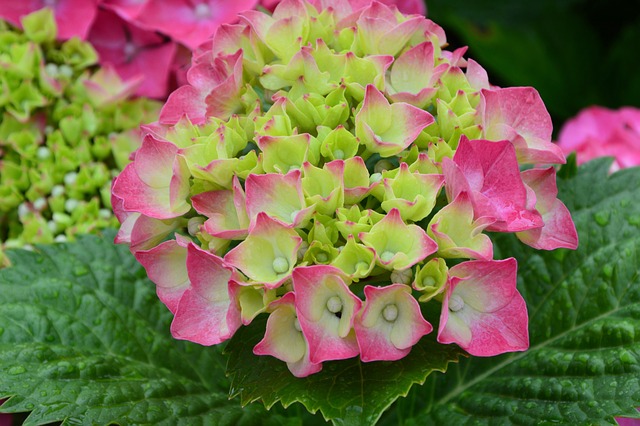
Growing an organic garden is a very pleasant and rewarding activity. However, for someone who does not have any experience with gardening, the thought of starting, or maintaining, a garden can be intimidating. So, what exactly should a novice learn and do when they want to start growing plants? Well, read the following tips.
Do not spend your money on chemicals to fight mildew. Mix a bit of liquid soap and some baking soda into water. This solution can be sprayed onto your plants once per week until the problem is resolved. Baking soda is safe for use on your plants and is a gentle, but effective way to care for your plants.
Cover fences and walls with climbing plants. Climbing plants are known to be very versatile, and can help hide any ugly wall or fence, and this often only takes one growing season. You can also train climbers to cover arbors and other things that you want covered, and they will even grow right through trees and shrubs. A number of climbers need to be attached to a support, but others just take care of their own attachments via tendrils and stems that twine. Wisteria, jasmine, honeysuckle, clematis and some rose varieties are good choices for climbers.
During winter, you should take your favorite plants inside. This is especially useful if you have a particular plant that you love or was expensive. Dig the plant up without damaging the roots and place it a big enough pot.
When mowing the lawn, don’t mow the grass all the way down to the root. If you leave a bit more height, the grass roots will get deeper, making your lawn stronger. Short grass leads to more shallow roots and will result in more brown, dried-out patches.
Vegetables in a garden need to have at least six hours of sun every day in order to thrive. Most members of the vegetable family need this minimum of light for proper growth. Some flowers need the same thing.
Divide irises. Increase your iris stocks by dividing your overgrown clumps. Try to life the bulbous irises when foliage begins to die. These bulbs will divide into several parts naturally when you pick them up. You can then replant them, and watch them flower the following year. You can divide rhizomes with a knife. From the outside cut the new pieces and then get rid of the old center. Don’t plant any pieces that don’t have any strong offshoots. Immediately replant all your selected cuttings.
Being a novice gardener, you should ensure that you follow the directions carefully for tool and chemical use. Irritation of the skin or even more serious injuries are possible if you ignore manufacturer’s directions. Prevent issues, and use your garden chemicals safely.
You should think about adding evergreen plants that yield berries into your yard space. They offer terrific color during the dreariest times of the year when nothing else you have planted has any hue remaining. Plants that provide instant winter color include Holly, Winterberry, American Cranberrybush, and the American Holly.
One way to create a great organic garden is to allow for a portion of your yard to be undeveloped for wildlife. A natural area will allow beneficial birds and insects, many of which pollinate plants, to live on your property and help your garden grow stronger.
Keep your tools handy to work more efficiently. For example, you could use an over-sized tote bag or an apron with multiple pockets. You should be able to do your garden work quickly if you keep a trowel, gloves, small pruning shears, and other handy devices close to you.
After your seeds sprout, the containers do not need to stay as warm as they once did. Your seedlings should be moved away from any heat source. If you used plastic wrap to insulate your seedlings, you should now remove it. Check on your seeds periodically to make sure you know when to remove the films.
Add three inches of mulch to your flower beds. This will help to inhibit weed growth, helps to lock in moisture, and adds needed nutrients to your organic garden. Also, the flower beds will look beautifully maintained at all times.
Using coffee grounds as part of your soil mixture in your garden is often advised for healthy plants. Coffee grounds will add nitrogen to your soil which will make them helpful for some of your plants. Coffee grounds as a source of nitrogen for plants are usually limited to acid-loving plants because coffee is acidic. Nitrogen is often the most important nutrient when it comes to plants thriving, and a solid source of nitrogen, like coffee grounds, urea, or compost, can boost growth speed and increase height.
You should always take spacing into account when placing plants in your organic garden. Many people underestimate the space needed for plants to grow to their full size. Plants need room for physical growth and for the air to circulate within the soil. Therefore, ensure that you allow for ample spaces between your seedlings.
Rotate your garden annually. If you keep planting the same thing in a particular area every year, it can cause a buildup of disease in the soil. The soil might contain fungus or diseases specific to one type of plant. If you change things and plant your garden in a different area, you will have a way to keep fungus at bay.
It is by now obvious how beneficial and enjoyable organic horticulture can truly be when you know how to approach it. You will eat better and have a fun and relaxing hobby that lets you enjoy the great outdoors. Use what you have learned, and your garden will blossom.